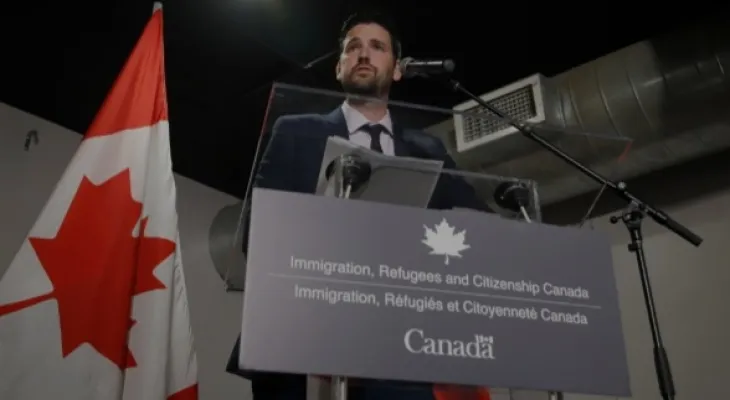Search here
Newspaper
Search here

Arab Canada News
News

Published: November 24, 2022
Shortly after the federal government unveiled plans to achieve its ambitious goal of seeing 500,000 immigrants arrive annually by 2025, Immigration, Refugees and Citizenship Canada (IRCC) published its strategic targets for Asia and the Americas.
The federal government's immigration goals also strongly focus on admitting more permanent residents with the skills and work experience necessary to complement labor shortages in Canada.
Its plan also anticipates an overall decline in the number of refugees, from 76,000 in 2023 to less than 73,000 in 2025, which Immigration Minister Sean Fraser attributed to the government’s plan to end the resettlement of 40,000 Afghan refugees next year.
Additionally, the latest IRCC targets, developed in consultation with Global Affairs Canada, the Canada Border Services Agency, and Public Safety Canada, aim to improve immigration and refugee patterns in Canada through cooperation with foreign governments.
Asia:
Afghanistan:
As part of its mission to enhance support and protection for refugees and vulnerable communities worldwide, Canada has committed to accepting more than 40,000 Afghan refugees.
Bangladesh:
Canada indicated it intends to work closely with the Bangladeshi government to improve the level and scope of immigration initiatives. The plight of the Rohingya Muslims in Bangladesh is also noted as a major concern, aligning with Canada’s goal to enhance international protection for refugees.
China:
IRCC is engaged in talks with China based on the need to address mutual irritants such as long visa wait times. As Canada continues to take immigration measures in response to the treatment of Uyghurs and Hong Kong, bilateral relations have become fragile.
India:
India has always been a major contributor to Canadian immigration; according to IRCC, 25 percent of the total number of permanent residents in 2019 were from India. IRCC will continue to advance Canada’s interests by strengthening economic and social relations with India while simultaneously increasing immigration efforts from the country.
Pakistan:
In addition to working with the government to assist relief efforts for those affected by the crisis in neighboring Afghanistan, Canada wants to further increase overall immigration from Pakistan.
South Korea:
In an effort to enhance resettlement and integration activities among South Korean immigrants in Canada, IRCC intends to collaborate with the South Korean government.
America:
Brazil:
In an effort to strengthen bilateral agreements and economic relations with Brazil, IRCC will continue to support legal immigration programs from Brazil while encouraging immigration for Brazilians, as Brazil is considered an important partner for all its goals in the Americas. Thus, the government will continue to improve processing times and immigration channels for Brazilians.
Colombia:
While addressing irregular migration from Colombia, managing returns home, and assisting asylum seekers and refugees from neighboring Venezuela, Canada will cooperate with Colombian officials to encourage legal immigration channels from the country.
Haiti:
Canada will work with Haiti to support regular immigration between the two countries while assisting those in need of asylum and protection in Canada.
Mexico:
By promoting legal immigration pathways such as the CUSMA work visa program, Canada will seek to intensify efforts for regular immigration with Mexico. Alongside helping refugees and asylum seekers, IRCC will cooperate with Mexico to resolve illegal entry cases, as Canada considers Mexico an important partner in achieving its regional strategic objectives.
Comments